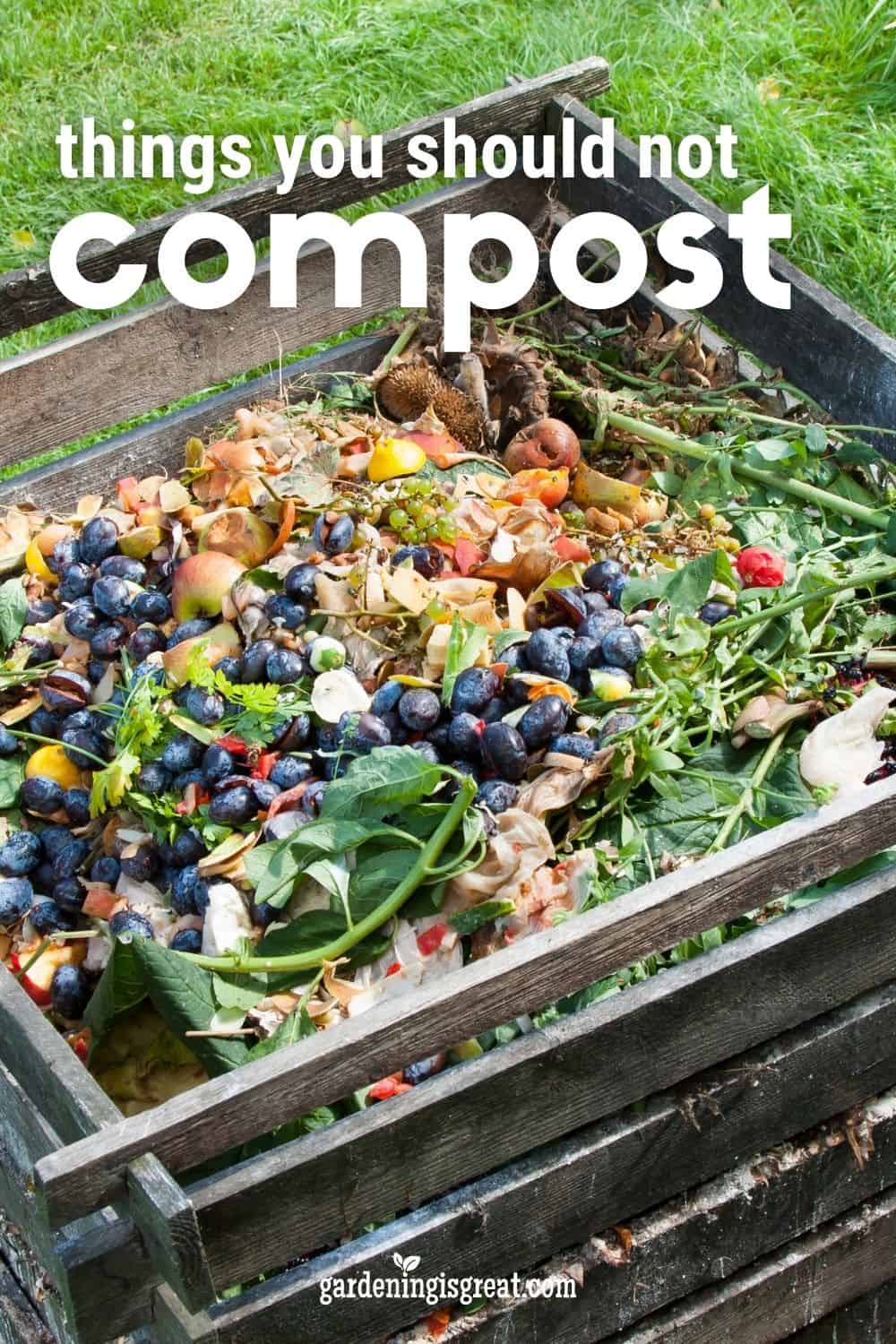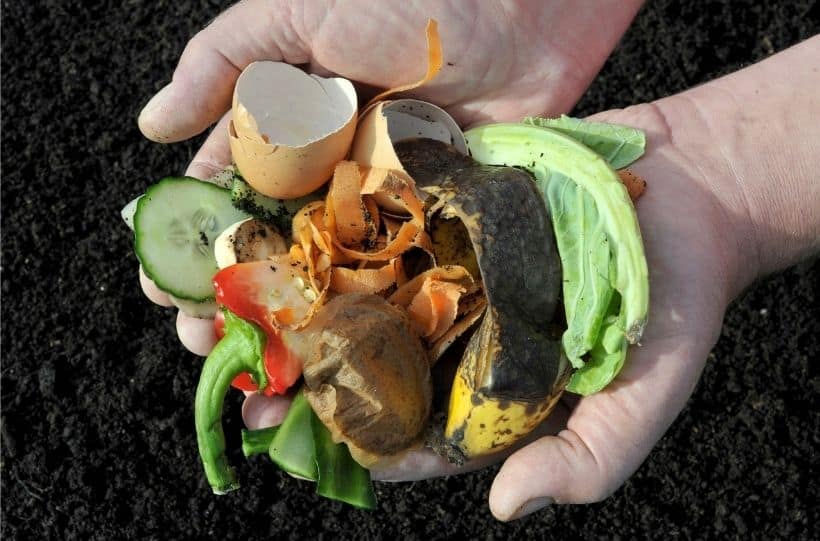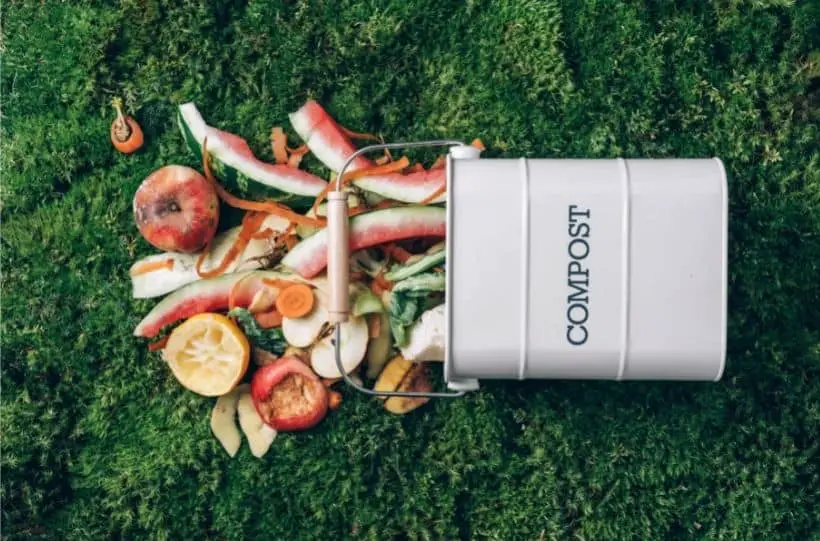What Not To Compost? 12 Things You Shouldn’t Compost
If you’ve already read our composting tops for beginners, you will know there are so many benefits to starting your own compost.
But, there are things you shouldn’t compost and specific items not to compost as they attract pests, create an odor, and can actually harm your compost.
Be sure to read on so you can be confident in the items not to compost so that your compost is healthy and useful.

This post contains affiliate links that earn me a commission at no additional cost to you.
Why Compost?
Starting a compost bin or pile at home offers numerous benefits to your garden and the environment.
Compost can:
- aid your soil’s health,
- make your plants stronger,
- and benefit your plants’ nutritional value.
It also has a positive impact on the environment and greenhouse gasses. Around $1 trillion worth of food is wasted every year around the world according to the U.N.
When food is buried in landfills, it produces methane gas, which is more potent than carbon dioxide. Methane gas has a huge negative impact on the environment and is one cause of global warming.
By composting fruit and vegetable leftovers, you are helping to reduce landfills and minimize the creation of methane gas.
What Not To Compost?
Even though composting at home is incredibly beneficial for your plants and the environment, there are specific items you should NOT compost.
Certain household items either:
- won’t decompose
- create odors
- Attract pests
- Kill microorganisms important for the decomposition process.

12 Things You Should NOT Put in Compost
Plastic
Plastic packaging never properly decomposes, even in industrial factories. Plastic can be broken down to create microplastics, but it stays in the environment indefinitely. Unfortunately, plastic is a huge pollution problem with thousands of products made from plastic and often they end up in the ocean.
If you add plastic to your compost heap, they will remain and won’t break down, lowering the quality of your compost.
Instead, the best thing to do with your plastic is to recycle it or, try to limit your plastic consumption by buying your produce from local farmers.
Meat and Bones
These items just simply will not break down in your at-home compost heap. The microorganisms and worms which help to break down your natural materials cannot decompose these items.
Not to mention, if you add meat scraps to your compost pile, you will attract unwanted pests such as rats, raccoons, and mice
Dairy
Similar to meat, dairy products also have a strong odor, especially when rotting. If your compost pile has dairy products, it will start to smell, which is unpleasant in itself, but this will also attract pests into your garden.
Cooked Rice
Generally, cooked foods are no good for your compost heap, but rice is especially bad.
Cooked rice is a breeding ground for growing bad bacteria. Similar to the reasons you have to be careful reheating cooked rice, cooked rice will cause bad bacteria to grow in your compost.
Citrus Fruits
You would think that citrus peel would benefit your compost heap, but actually, it can have the opposite effect.
Citrus fruits are acidic and can change the composition of your compost. It can slow down the breakdown of your compost. Plus, if you have worms in your compost, citrus fruits will cause them harm and potentially kill them.
A much better use of your leftover citrus peel is to create homemade air fresheners and natural cleaners.
Onion and Garlic
Similar to citrus fruits, onion and garlic also harm the microorganisms needed to decompose compost. By adding these food scraps into your compost, it will prevent waste from being broken down.
An alternative is to plant the top of your onion directly into your soil and grow it into a new bulb.
Fruit and Vegetable Stickers
Just like with the plastic packaging above, the stickers that you get on your fruit and vegetables are not compostable.
Leaving that small sticker on your peel is just going to contaminate your compost. Ensure that you double-check your peel for stickers before adding them to your compost pile at home.
Tea Bags
Did you know that most tea bags are actually made of synthetic fibers and more often than not contain plastic?
Yep, you read that right! Teabags often contain plastic. Not just any teabags either, but most often your favorite brands such as Twinings, Tetley, and Yorkshire tea. Studies have revealed that tea bags contain up to 25% plastic.
And as we know from earlier, plastic is not biodegradable, hence will not decompose in your compost.
However, if you have loose tea or empty the tea from your tea bag, then this can be added to your compost. Tea is a good source of nitrogen and can aid in the decomposing process.
Animal Feces
Any animal feces such as dog or cat feces can be full of germs and parasites. By adding these to your compost, firstly your compost will have a bad odor. But more importantly, you will potentially spread those parasites and germs to your compost.
Plants with Pesticides
Pesticides are full of chemicals that can actually kill the microorganisms and worms within your compost. Not only that but pesticides have been known to have a negative impact on pollinators, which we want to attract to our garden to help naturally fertilize our plants.
Diseased Plants
Plants that are diseased, even when pulled from the ground, are still carrying that disease. The disease can spread from the infected plants to your compost making it unhealthy.
If you then spread this compost onto your soil and growing plants, it is going to have a negative effect and spread the disease even further.
Fats and Fat-based Condiments
Fats are unable to be broken down and hence will just sit in your compost. Have you ever seen the experiment when oil and water are added to a bottle? The water and oil separate, with the oil sitting on top of the bottle.
Now imagine if you added fat and water to your compost. The fat would surround the other materials, causing a barrier between it and the water. This then displaces the water, limits airflow, and brings the composting process to a near halt.
Not to mention, adding fats to your compost creates odors and would attract pests to your garden.
Create Your Own Compost
If you stick to this list of 12 things you shouldn’t compost, whilst adding natural, biodegradable items, you should be able to create your own compost at home.

Remember to turn your compost regularly, ensure it is moist, and limit bad odors, so that your organic material is able to decompose without attracting pests.
If you are new to composting at home, be sure to check out our Beginner Tips To Composting and these next:
